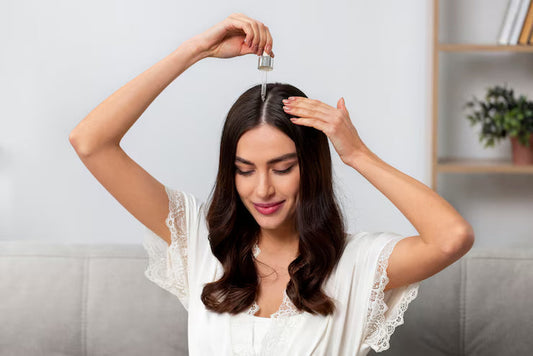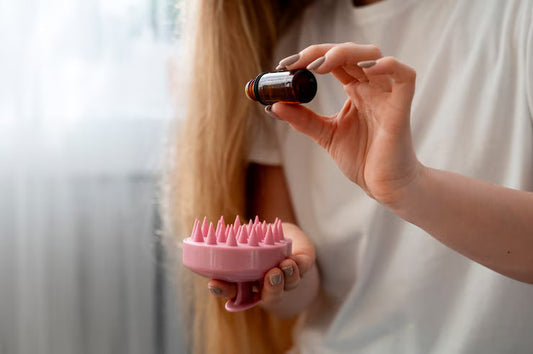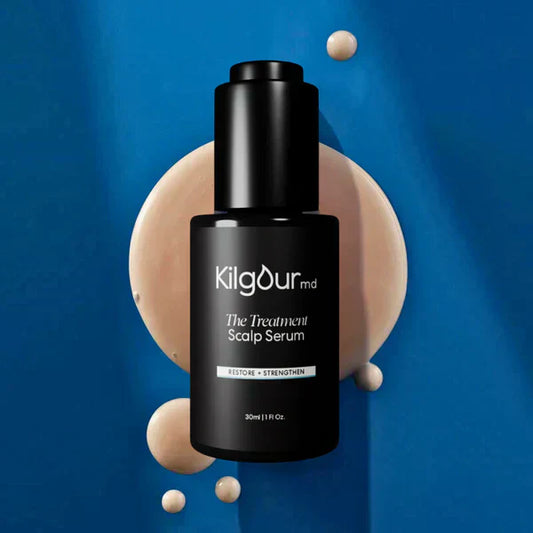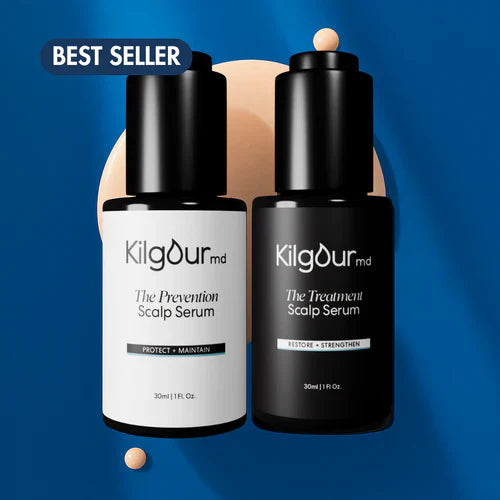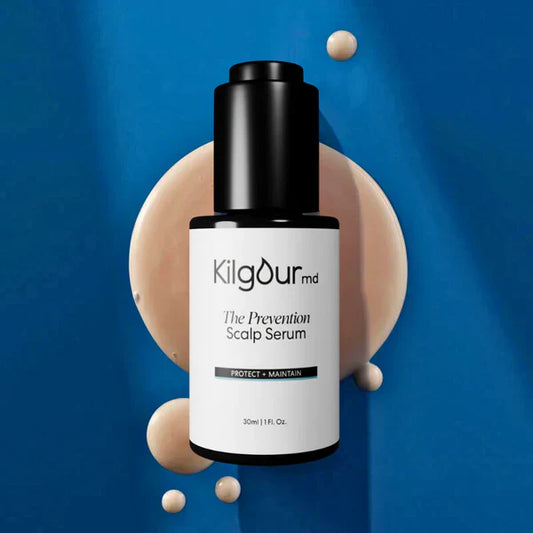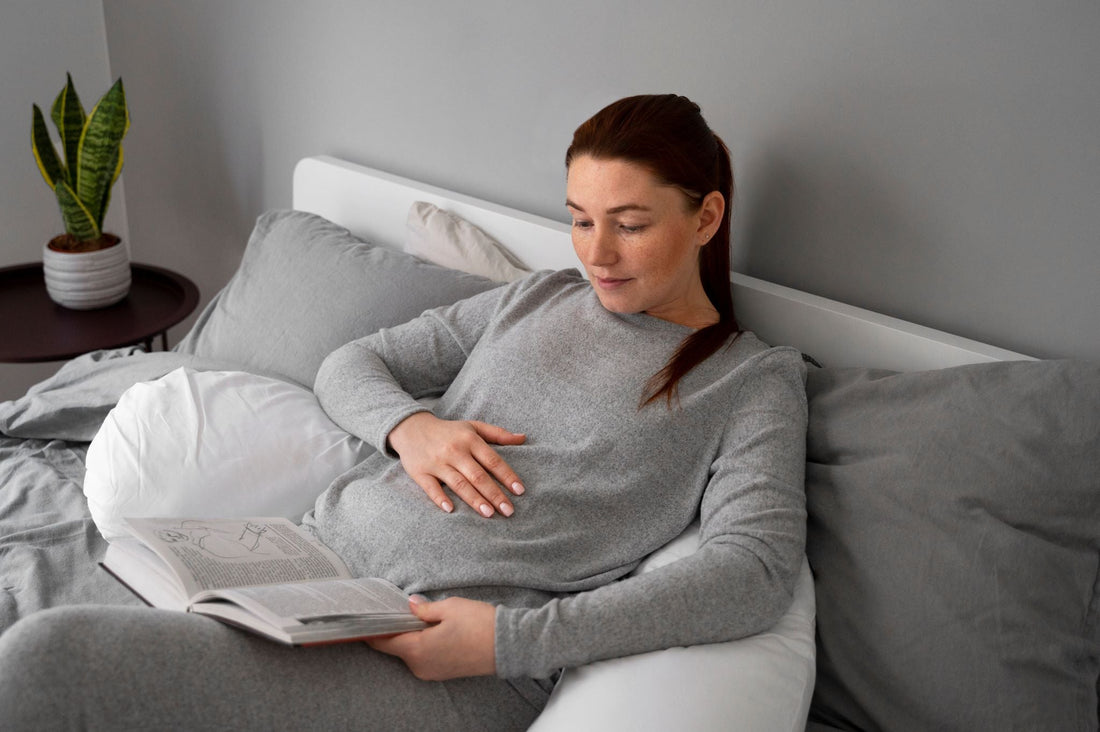
The Postpartum Hair Mystery: Shedding Light on Hair Thinning After Pregnancy

Let's face it, pregnancy brings about a whirlwind of changes in your body. From that beautiful baby bump to the hormonal shifts happening behind the scenes, it's no surprise that your hair might also take a rollercoaster ride. The good news? The pregnancy hair boost is real.
Research shows increased hair diameter and a longer growth phase thanks to rising estrogen and progesterone levels. But hold on, there's another side to the story – postpartum hair thinning.
Don't panic! This shedding is usually temporary, and with a little understanding and TLC, you can help your hair get back on track. Here, we'll unravel the mystery behind postpartum hair loss, explore ways to support hair regrowth and answer some frequently asked questions.
Why Does My Hair Fall Out After Pregnancy?
It all boils down to hormones, those ever-fluctuating chemicals that orchestrate so much in our bodies. During pregnancy, your estrogen and progesterone levels soar, creating a growth haven for your hair. These hormones extend the anagen phase (growth phase) of your hair cycle, leading to thicker, fuller hair.
However, after delivery, those hormone levels take a dramatic plunge. This sudden shift throws your hair cycle into disarray, causing a large number of hair follicles to enter the shedding (telogen) phase all at once.
Think of it as a hormonal cash flow shortage – the growth party abruptly ends, and your hair starts leaving the building. This "delayed anagen release" is the culprit behind postpartum hair loss.
Will My Hair Grow Back After Postpartum Shedding?
Absolutely! While the emotional toll of losing more hair than usual is real, postpartum hair loss is typically temporary. With a little patience, most women see their hair return to its normal growth cycle within 6 to 15 months.
However, some women may experience a lingering decrease in hair quality or thickness compared to pre-pregnancy levels.
Does Breastfeeding Affect Postpartum Hair Loss?
According to a 2014 study, breastfeeding might offer a short-term benefit! Researchers found that breastfeeding women had a higher percentage of hair follicles in the growth phase at four months postpartum compared to non-breastfeeding mothers. However, this difference seems to even out by the first full year after birth. So, while there might be an initial boost, the long-term impact of breastfeeding on hair growth appears minimal.
How Severe Can Postpartum Hair Loss Be?
For most women, postpartum hair loss is a self-correcting issue that requires patience. However, for some, the shedding can be more prolonged or even permanent. This variation can be attributed to other hair-related risk factors, such as genetics.
Experts debate how common this more severe form of postpartum hair loss truly is. Some suspect it might be a sign of underlying androgen-sensitive hair thinning, a condition that affects both men and women. In women, it often presents as a general thinning on the top of the head.
So, why would pregnancy suddenly make this hair loss more noticeable? With androgen-sensitive hair thinning, the growth phase is naturally shorter. Pregnancy hormones may provide a temporary reprieve by allowing these follicles to stay in growth mode longer.
However, once those hormones drop postpartum, all those hairs are pushed out of the growth phase at once, leading to a more dramatic shedding experience.
If you have a family history of hormonal hair loss, talk to your dermatologist about a personalized plan for postpartum hair health. Their guidance can help you manage this specific concern and ensure optimal hair support.
Can I Prevent Postpartum Hair Loss?
Unfortunately, there's no magic bullet to prevent postpartum hair loss completely. However, you can take steps to support healthy hair growth during this transition:
- Nourish Your Body: Postpartum is a demanding time, and ensuring you're getting enough essential nutrients is crucial for overall health, including hair health. Consider a high-quality prenatal or postnatal vitamin formulated to address the specific needs of this period.
- Manage Stress: Stress takes a toll on your entire body, including your hair. Explore healthy stress-management techniques like yoga, meditation, or connecting with a support group.
- Scalp Care: Maintain a gentle scalp care routine. Wash your hair regularly with a mild shampoo and conditioner suitable for your hair type. Scalp massages can also improve blood flow and promote hair health
Checkout - https://kilgourmd.com/blogs/news/12-hair-wellness-habits-to-start-in-2024.
- Explore Targeted Scalp Treatments: Scalp serums formulated with natural hair-supporting ingredients like rosemary,, saw palmetto, caffeine, and others might offer additional benefits. Consider kilgourMD’s scalp serums, as formulated to address environmental stress.

